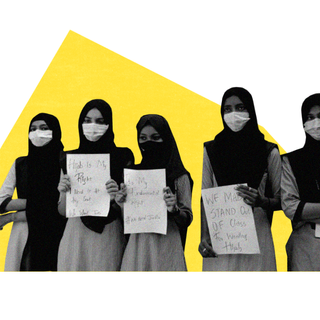Professional football players across 24 clubs in England are now entitled to maternity benefits in their contracts. Players from the Women’s Super League and Women’s Championship will have access to such benefits for the first time, a move that politicians havecalled a “great step forward.”
The present policy will notably cover long-term sickness as part of maternal allowances. The Football Association (FA) and the Professional Footballers’ Association (PFA) have both agreed to these terms. “Women playing professional football are often faced with short contracts, low pay, and poor working conditions,” Taiwo Owatemi, the MP for Coventry North West, told The Guardian about the present policy.
Women athletes suffer from not being protected by adequate maternal benefits. Not only do they lose out in terms of their actual career, but also sponsorship opportunities and brand deals that are an important aspect of livelihood for sportspersons. In 2010, for instance, Olympic marathoner Kara Goucher told The New York Times that Nike stopped her salary while she was pregnant; she had also suffered hip injuries from marathoning seven months after giving birth. More recently, in 2019, Olympic athlete Alysia Montaño said that Nike didn’t include maternity benefits in its sponsorship contracts.
Previously, maternity leave for athletes was at the discretion of individual clubs. While this is not the first time such policies have been institutionalized across the board, it is the first significant one. In 2020, FIFA approved a 14-week maternity leave policy for players, stipulating that they be paid at least two-thirds of their salary during the leave and are reintegrated once the leave period is over. But this was criticized for being too short a period and for not covering maternal healthcare too.
In that same year, on the other hand, the Women’s National Basketball Association (WNBA) announced anagreement with players’ associations that it will guarantee fully-paid maternity leave for its players, along with a child-care stipend. “I think it was taboo… [there are] so many stigmas and stereotypes around pregnant women that people didn’t talk about [pregnant athletes],” Charlene Weaving, a human-kinetics professor at St. Francis Xavier University, told The Atlantic.
Related on The Swaddle:
Indian Women’s Football Surges Ahead Without Resources, All Thanks To Its Players
The lack of standardized maternal policies in women’s football so far has meant that many players always considered motherhood only after retirement. “There are very real concerns for the diminished career prospects of professional women footballers who become mothers,” noted a 2021 study on the subject.
“The current lived realities for many elite women footballers are an existence that has only short-term security, financial precariousness, and inadequate resources. These circumstances have a significant impact on the athletic careers of women in terms of both early retirement and decisions about motherhood,” the researchers add.
The policy is yet to grain widespread acceptance across the sporting world, but it is slowly picking up in some corners. Notably, Indian athletes don’t have similar guaranteed protections. However, Indian cricket captain Virat Kohli availing of paternity leave caused a stir, with many questioning his commitment and patriotism. Previously, M.S. Dhoni missed the birth of his daughter, claiming he was on “national duty.”
In other instances of maternal welfare for athletes, the Pakistan Cricket Board granted 12 months of paid maternity leave to women cricketers.
Arguably, the debate on parental leave policies in sports does more than just address the more immediate aspects of gender gaps in sport; it also asks who gets to represent a region, club, or country with honor and who is seen as shirking in their “duty.” The Leaflet notes that sports occupy a peculiar position in terms of work, wherein the regular norms around parental leave don’t apply, and these are left to the discretion of clubs and associations. “Seeking paternity or maternity leave is fraught with problems of losing rankings, non-selection and worst, seen as a player who is not serious about the sport, a tag that sportspeople can ill afford,” they added.
Making the policy apply uniformly is a step in the right direction. However, longer maternity leaves without a corresponding longer paternity leave may still leave the problem of short-lived careers for women athletes unaddressed.




